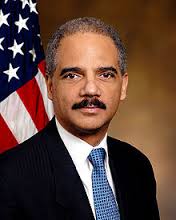With not one single day of legal training and not enough interest to even read the reviews of books that discuss law, I have a idea of what I think should and should not be.
I think the Constitution was meant to limit what the federal government may do. Further, it lists several things that it CAN do. And every thing else is relegated to the states.
Therefore, I think that the feds cannot regulate firearms but states, counties and cities may. It’s why I think that schools should be more locally run and funded and why things like alcohol, speed limits and hunting should be left to the states.
Now, to those local governing bodies. I’m pretty sure that they can legislate freely. Zoning laws preventing high rise apartments? Go for it. Wanna ban alcohol in the county? Sure. No hunting on Sunday? Fine.
Bad ideas all, but certainly doable.
Which, when I consider the soda ban in New York, sums up my feelings regarding that law:
Stupid but legal.
Imagine my surprise when I saw this:
A judge invalidated New York City’s limits on large sugary drinks on Monday, one day before they were to go into effect, dealing a significant blow to one of Mayor Michael R. Bloomberg’s signature public health initiatives and a marquee project of his third term.
The decision by Justice Milton A. Tingling Jr. of State Supreme Court in Manhattan blocks the city from putting the rules into effect or enforcing them.
I like the idea of bad ideas not being implemented, but I want that to be done in a legal manner. I’m pretty sure that the city of New York can regulate soda in anyway they see fit. But the judge doesn’t see it that way:
Justice Tingling said the rule banning the drinks was “arbitrary and capricious.”
In his opinion, Justice Tingling specifically cited a perceived inequity in the soda rules, which applies to only certain sugared drinks — beverages with a high milk content, for instance, would be exempt — and would apply only to some food establishments, like restaurants, but not others, like convenience stores.
“It applies to some but not all food establishments in the city,” Justice Tingling wrote. “It excludes other beverages that have significantly higher concentrations of sugar sweeteners and/or calories.”
The judge also wrote that the fact that consumers can receive refills of sodas, as long as the cup size is not larger than 16 ounces, would “defeat and/or serve to gut the purpose the rule.” The judge also appeared to be skeptical of the purview of the city’s Board of Health, which the Bloomberg administration had maintained has broad powers to seek to better the public’s health. That interpretation, the judge wrote, “would leave its authority to define, create, mandate and enforce limited only by its own imagination,” and “create an administrative Leviathan.”
We’ll see how it plays out. But for now, people in NYC are free to decide to buy a large soda. And good for them.







